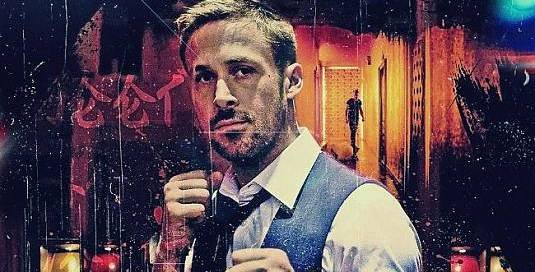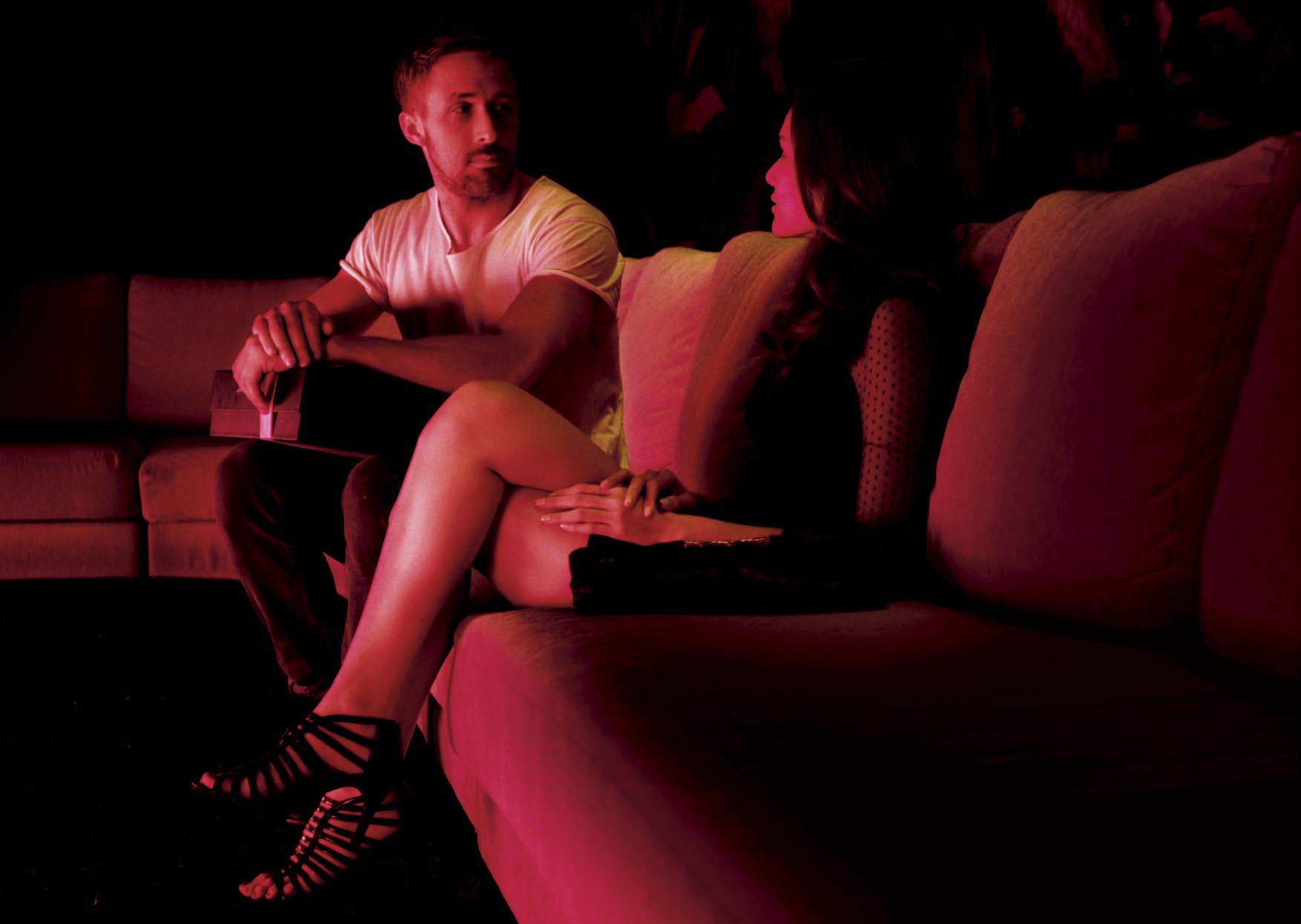
Only God Forgives will be the final film to screen at the With Blood on His Hands: The Films of Nicolas Winding Refn Retrospective at the TIFF Bell Lightbox theater on November 5th, 2013 at 8:45pm.
Early critical reaction to Nicolas Winding Refn’s new film, Only God Forgives, has found it an extremely polarizing experience. There have even been some walkouts and at Cannes Film Festival – where the film was openly booed by the audience. Conversely, some have strongly connected with the themes of morality, religion and especially the sexual dynamic of the mother/son relationship. I count myself among these – although to say I loved it makes me feel, I don’t know, weird.
From the onset of the movie the audience is assured that they will be sitting through an hour and a half of atrocity, a point that is driven home repeatedly with a cold, off-putting clarity. This movie does not seem to want you to enjoy it; rather it demands that you experience its commentary and either be outraged or begrudgingly identify with it. The film takes place amidst what is shown as the amoral underbelly of Bangkok, where, for the right price, one can satisfy any depth of depravity they care to reach. It is a story of two drug smuggling brothers, born of the same calculating, manipulative mother, yet wholly divergent in the expression of their sexuality. The younger brother, Julian (Ryan Gosling) cannot even touch a woman; he can only fantasize frustratingly from afar. Older brother Billy (Tom Burke) is all too capable of expressing his sexuality and does so with confident, terrifyingly misguided brutality that quickly facilitates his brutal death.

‘You’re the kind of girl I’d love to take home to meet my mom and then be mercilessly ridiculed by her.’
When we meet their mother, Crystal (Kristen Scott Thomas), who has flown in from America to Thailand to witness the body of her eldest son, we immediately begin to understand why her offspring are who they are. Her inappropriate affection for Julian is a weapon that she uses to keep him weak and therefore useful to her. That is not to say Julian isn’t dangerous; his sexual frustration occasionally explodes into childish tantrums, though the resulting physical violence is always directed towards men, so strong is his fear of (or respect for?) women. Though we don’t witness first-hand Crystal’s relationship with Billy, it is understood that he was raised the alpha male, which, in a supremely dysfunctional household, led to his unhealthy quest to assert his dominance over women. The mother/son relationship is taken to the farthest extremes here, but within that extremity can be found a universal theme: a woman has ultimate sexual power over her sons and that strongly informs the men they will become. Our sexuality is such a driving force, and it can easily be set astray by a woman with less than honourable intentions. I almost wanted the film to explore the nature of Crystal’s relationship with her own father, but that would have been a different movie.
While I don’t want to lay out too much of the plot for you, the crux of the story involves Julian looking to avenge his brother’s death which in turn incites Chang (Vithaya Pansringarm), a retired police officer and the unquestioned moral authority in Bangkok, to find him deliver him to justice. It is more complicated than that but I would rather you find out the intricacies of the plot by seeing it. If Chang is indeed the titular ‘God’ or maybe just God’s enforcer, then his forgiveness comes in the form of brutal and violent retribution. And when he is done, he sings karaoke. I can’t describe to you how mesmerizing the scenes of him cleansing his spirit in the karaoke bar are, but believe me, there’s a vulnerable beauty to these scenes that play just this side of sweetly adorable.
The performances are almost all amazing, save for Ryan Gosling. Don’t get me wrong, he served the role well and didn’t detract from the story, but amidst brilliant performances from Thomas and especially Pansringarm, it is all too noticeable that Gosling is once again doing his long empty gaze and soft spoken intensity routine that he showed us in Drive (2011) and then again in The Place Beyond the Pines (2012), and I felt like it didn’t really capture the stuck-below-the-surface rage, shame and awkward confusion that this character must be suffering every waking moment. Though David Mamet once said that all an actor needs to perform a script are ‘a strong voice, superb diction, a supple, well-proportioned body and a rudimentary understanding of the play. Anything else – becoming one’s part, feeling the character’s emotions – devalues the practice of a noble craft and is useless’, so maybe I’m just being a dick.
I do recommend that you see this movie – it is densely layered yet not needlessly confusing. It is slow and deliberate but at no point is it boring or poorly paced. It is both horrifying and horrifyingly beautiful.
Just don’t take your mom to see it.
Casey Lyons

July 24, 2013
No Comments
By admin